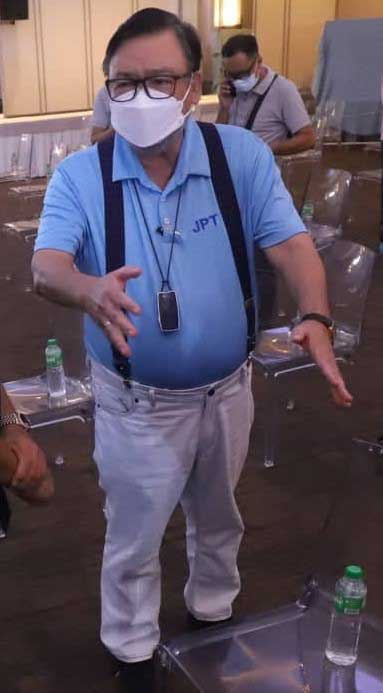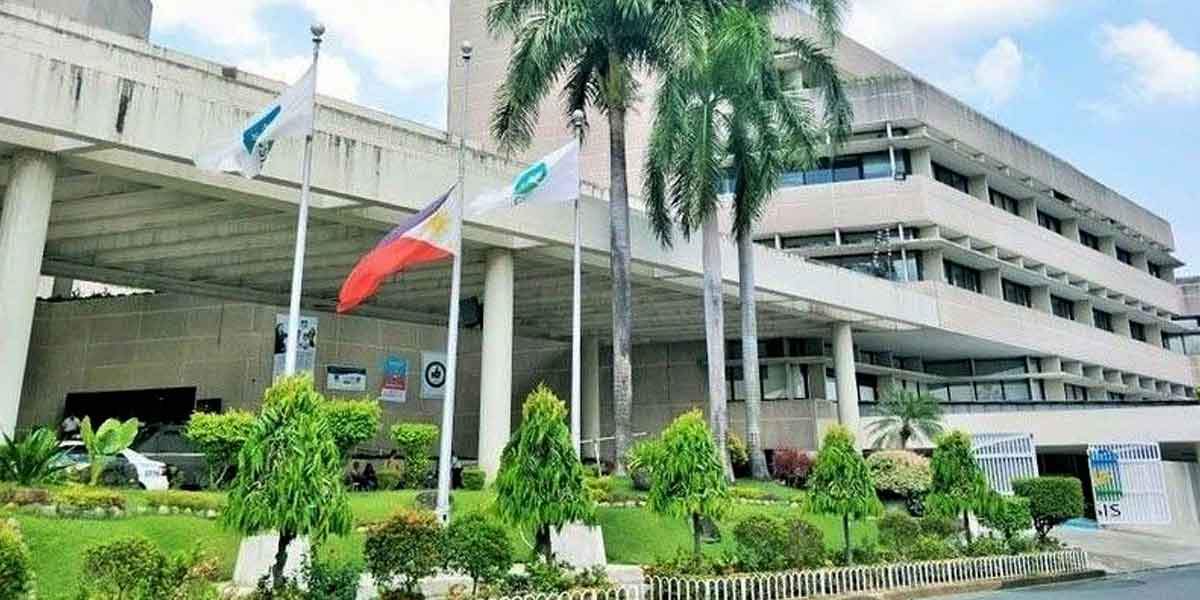
By Joseph B.A. Marzan
Iloilo City reiterated its call to the national government to help curb the coronavirus disease 2019 (COVID-19) as beds in most private health care facilities have run out as of Saturday.
In a statement on Facebook, Mayor Jerry Treñas pleaded with residents to stay at home as he revealed that city hospitals have run out of beds for COVID patients even as beds for non-COVID patients are running short.
Data from the Iloilo City government as of June 19, 2021 indicated that six hospitals have run out of beds for confirmed and suspected COVID-19 patients – The Medical City Iloilo (TMCI, 29 beds), Iloilo Doctors Hospital (IDH, 39 beds), St. Paul’s Hospital (SPH, 26 beds), Iloilo Mission Hospital (IMH, 29 beds), Medicus Medical Center (MMC, 12 beds), and Metro Iloilo Hospital and Medical Center (MIHMC, 23 beds).
Only 19 beds are available at Qualimed Hospital (1), AMOSUP Seamen’s Hospital (6), West Visayas State University Medical Center (WVSUMC, 10), and Western Visayas Medical Center (WVMC, 6).
Several hospitals also have patients awaiting vacant beds – TMCI (3), IDH (2), MMC (15), WVSUMC (3), and WVMC (40).
As to beds for non-COVID patients, city-based hospitals still have 343 available beds.
“Please stay at home. There are no more vacant COVID beds in the hospitals of Iloilo City. The hospitals have been overwhelmed by the number of positive patients who are seniors and those with comorbidities. Even the emergency rooms are already full of COVID-positive patients. Please stay at home. We will get through this alive together,” Treñas said.
In another statement, the mayor reiterated his call to the national Inter-Agency Task Force for the Management of Emerging Infectious Diseases (IATF-MEID) to provide support to hospitals, as well as medicines for COVID and additional vaccines.
He sent a letter dated June 16 to IATF-MEID chairperson, Department of Health (DOH) Secretary Francisco Duque III and vaccine czar Carlito Galvez, to formalize the requests.
This was due to the continuing surge in COVID-19 cases, which, according to data from the DOH-Western Visayas Center for Health Development (DOH-WV CHD) as of June 20, is now at 10,050 total cases (2,561 active, 7,234 recovered, 252 deaths).
Meanwhile, City government data indicated a total of 45,782 individuals vaccinated against COVID-19 (37,451 for the first dose; 8,331 for the second dose).
The 8,331 fully vaccinated persons represent only 1.851 percent of the city’s 450,000 target population.
Treñas last week also eased Modified Enhanced Community Quarantine (MECQ) restrictions due to economic losses suffered by small business owners and other lower-income earning residents.
“We were placed under MECQ because of the number of cases, and our health facilities are now overwhelmed. On behalf of the people of Iloilo City, I am pleading to the [IATF-MEID] for support to our hospitals, COVID medicines and additional vaccines,” Treñas said.
The mayor’s cry for help was endorsed by several groups and institutions such as:
– Philippine College of Physicians (PCP) Western Visayas – Panay Chapter;
– Integrated Bar of the Philippines (IBP) Iloilo Chapter;
– University of the Philippines Visayas (UPV);
– Ilonggo Artists Festival Association (IAFA);
– Iloilo Economic Development Foundation (ILEDF);
– Iloilo Live Events Alliance (ILEA);
– Archdiocese of Jaro;
– Health and Wellness Association of Iloilo, Inc.;
– Western Visayas Transport Cooperative (WVTC);
– University of Iloilo-PHINMA Education Network (UI-PEN); and
– Iloilo Medical Society (IMS).
‘NATIONAL SHOULD HELP LOCAL’
ILEDF Executive Director Francis Gentoral said the national government should maximize downloading its assistance to local government units (LGUs), who in turn will be implementing policies.
In an interview with Daily Guardian on Air via Aksyon Radyo-Iloilo last Friday, Gentoral highlighted the need to “change perspective” on managing COVID-19 recovery programs, saying that there should be “segmented” response policies, which would depend on the needs and capacities of LGUs.
But while the programs should be segmented, the “whole-of-government” approach should be appreciated in helping out LGUs, where national agencies should be working together beyond their legal mandate.
“If you are planning, and then to each his own when implementing, there is a big possibility of wastage of resources especially on the nature of the program. They should have more ability to work with other groups, not only strictly within their mandates. The mindset of whole-of-government needs to be appreciated. At the end of it are the local governments who have the contact with the community. National agencies should help local governments to perform their roles properly,” Gentoral said.
As to the Department of the Interior and Local Government-Region 6’s (DILG-6) position that the city and province of Iloilo are veering from national IATF-MEID guidelines, Gentoral said regional authorities should instead focus on helping LGUs come up with a common policy since they are the ones who are in touch with communities.
DILG-6 legal counsel Atty. Cedric Jaranilla told Daily Guardian last Thursday that Treñas and Iloilo Governor Arthur Defensor Jr. steered away from the IATF-MEID’s Omnibus Guidelines on their respective MECQ policies by loosening some policies like allowing dine-in services in restaurants.
But Jaranilla said the regional IATF-MEID is open to receive and endorse the requests of the city and province to the national level if they wish to continue implementing their policies.
Gentoral said LGUs have reasons why they eased some restrictions amid a stricter community quarantine status.
“The local government has a reason why it had a variation. Who doesn’t want a unified protocol or policy? But I think rather than sanctioning the local government, try to help the local government come up with a common policy. They shouldn’t have to wait for the local government to request, because the local government is on the frontlines and the issue is there,” Gentoral added.
He emphasized that national and regional authorities should consider inputs from LGUs in crafting pandemic response policies.
“We just keep doing policies and guidelines, but are we looking at the situation of those who we are making guidelines for? You who make the guidelines need to put yourselves in the shoes of those who we make guidelines for. We expect them to contact trace, do tests, they’re also assigned at posts to check travel passes, and they’re still thinking about what to feed themselves and their families. Who doesn’t want to volunteer? They need a support system. What’s good about our city is that in some way or another, we support them, but how long can we do it?” he said.
He also said that the chief concern of businesspeople in the city and province is the “reopening of businesses to create employment, sales, and boost local government taxes which [LGUs] could use to support their programs including especially in health.”
Gentoral said public cooperation was key in reopening of businesses and boosting consumer confidence, ultimately leading to consumption of goods and services.
“The basic principle is that minimum health standards are needed. Maybe the whole community needs to cooperate. How can the mayor advocate if the people are not following? We imagine that the people should cooperate, because I think that if we follow that, we become confident to enter establishments because people are following health protocol. So, there is consumer confidence, then there is consumption.”




















